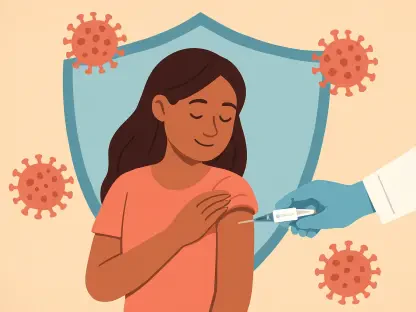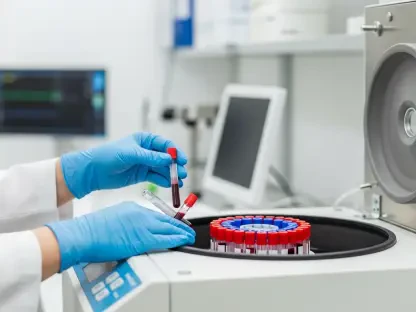Imagine facing the battle against a form of lung cancer so rare that it affects only about 2% of those diagnosed with non-small cell lung cancer (NSCLC). This is the reality for those with ROS1-positive NSCLC, a disease that could soon see transformative change with the approval of Nuvation Bio’s Ibtrozi (taletrectinib). The potential for this medication to become a standard treatment has sparked intrigue in the medical community, raising the question: Could Ibtrozi redefine how ROS1-positive NSCLC is treated?
The Emerging Need for Breakthroughs
ROS1-positive NSCLC is not only rare but also aggressive, frequently leading to CNS metastases and presenting significant challenges for treatment. Its discovery is often daunting, especially among non-smokers who unexpectedly find themselves confronting such a severe condition. The broader context of lung cancer treatment continues to highlight the urgent need for advanced targeted therapies. As other options often fall short, there is an increasing demand for breakthroughs that can provide new hope and improve outcomes for those affected by this difficult subtype of cancer.
The Promise of Ibtrozi
Clinical trials such as TRUST-I and TRUST-II have been pivotal in establishing Ibtrozi’s effectiveness. With over 300 participants, these studies showcased promising clinical response rates, boasting a 90% confirmed overall response rate (cORR) in treatment-naïve patients in TRUST-I and 85% in TRUST-II. For those previously treated with a ROS1 TKI, the response rates were also notable—52% in TRUST-I and 62% in TRUST-II. Despite being single-arm studies without median progression-free survival data, Ibtrozi demonstrated durable responses and tolerability, suggesting its potential as a new standard option for patients and clinicians alike.
Perspectives from Experts and Patients
David Hung, CEO of Nuvation Bio, has expressed optimism regarding Ibtrozi, describing its approval as a milestone in targeted therapies for ROS1-positive NSCLC. His sentiment is shared by advocacy groups like the ROS1ders, whose founder, Janet Freeman-Daily, emphasized the critical need for diverse treatment options available to younger patients confronting this aggressive form of cancer. These voices reflect the tangible impact that new treatments like Ibtrozi can have on both the medical community and patients’ lives. Personal stories from beneficiaries of the medication provide compelling narrative evidence of its impact and the potential improvement in quality of life it offers.
Navigating Treatment Decisions
As Ibtrozi steps into the spotlight, patients facing ROS1-positive NSCLC must carefully consider this treatment in their medical journey. Navigating these decisions requires access to reliable information and guidance from oncologists familiar with emerging therapies. Clinicians can play a crucial role by consistently updating their knowledge base regarding Ibtrozi’s efficacy and potential benefits. The evolving landscape of drug approvals highlights the need for flexible and responsive approaches to standardized care for ROS1-positive NSCLC, taking into account individual patient needs and advancements in treatment.
Looking Ahead: The Path Forward
The rise of Ibtrozi introduced a significant shift in the potential treatment of ROS1-positive NSCLC. The positive outcomes observed in trials offered promising insights for both new and previously treated patients, paving the way for enhanced standards in lung cancer care. However, this progress also called for a diligent focus from the medical community on continually evaluating the safety and efficacy of innovative treatments. As more research unfolded, the hope was for ongoing improvements in patient outcomes, further supporting the momentum toward more personalized and effective cancer treatment pathways.









